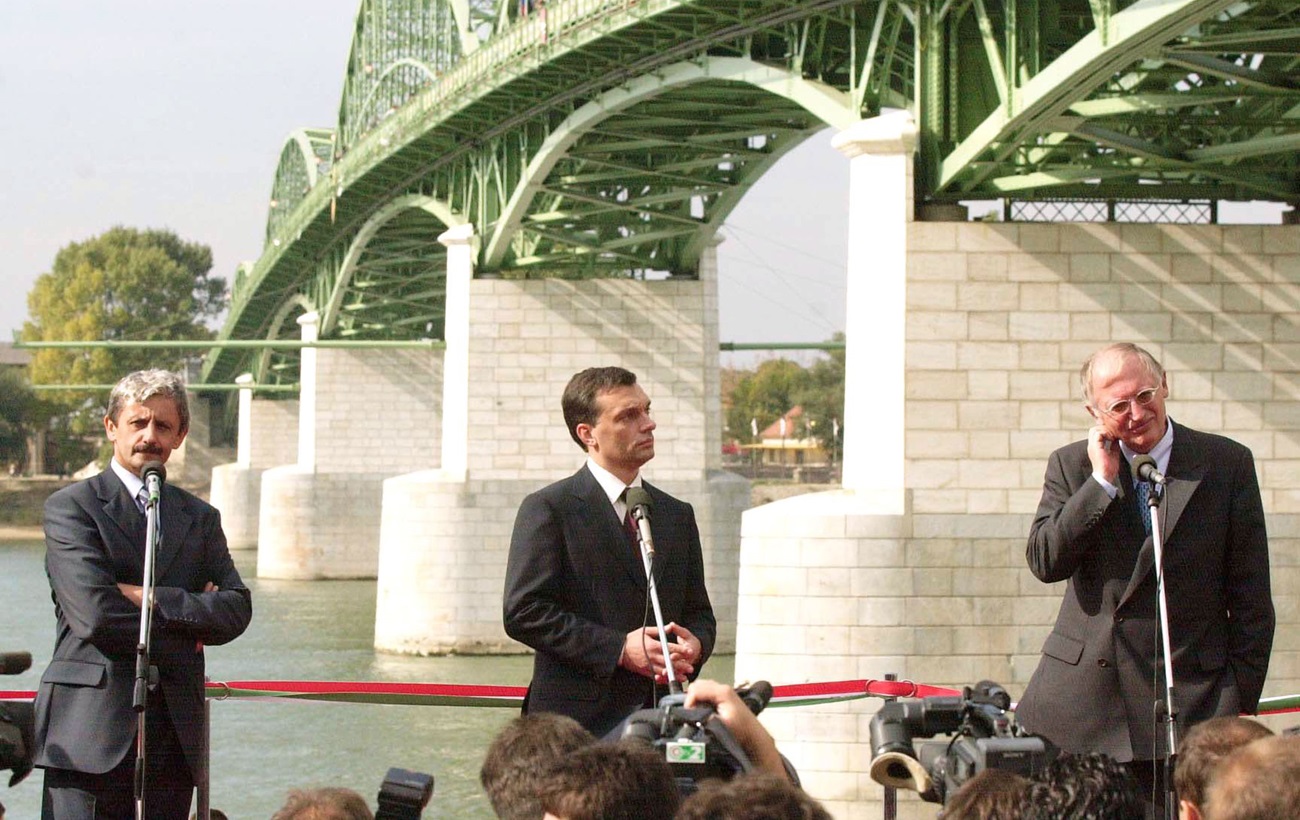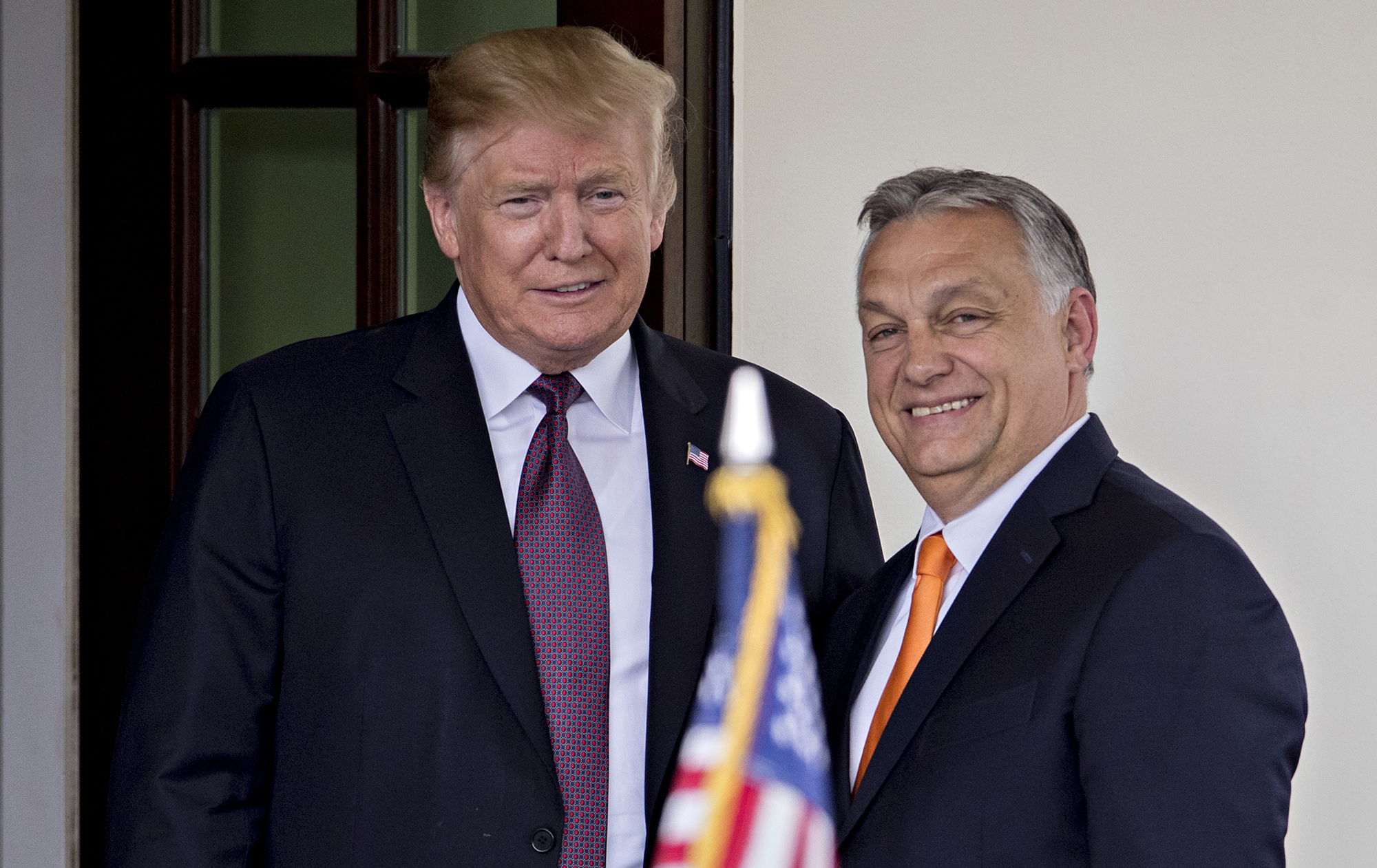Orbán’s Moscow ties and anti-Ukraine rhetoric: What drives Hungary’s PM?
 Hungarian Prime Minister Viktor Orbán (Photo: Getty Images)
Hungarian Prime Minister Viktor Orbán (Photo: Getty Images)
Viktor Orbán has led Hungary’s government for the past 14 years and is one of Europe’s most controversial politicians. He is often accused of authoritarianism, catering to Russia’s interests, and harboring anti-Western sentiments. The Hungarian prime minister consistently blocks EU aid to Ukraine and insists on "peace negotiations" to end the war.
RBC-Ukraine provides details on Viktor Orbán and his stance on Ukraine.
Contents
- Who is Viktor Orbán: Biography and early political career
- Hungary’s youngest Prime Minister
- Shift from democracy to authoritarianism
- Supporter of Putin and Trump
- Unfriendly neighbor: Orbán’s position on Ukraine
Who is Viktor Orbán: Biography and early political career
Viktor Orbán is 61 years old and was born in Szekesfehervar, Hungary. His father worked as an agricultural engineer, and his mother as a speech therapist. After finishing high school, he completed his mandatory military service and then entered the law faculty of Budapest University.
Orbán was actively involved in student government. His thesis focused on Poland’s anti-communist movement "Solidarity."
He began his political career in 1988, co-founding the social-political alliance FIDESZ (an acronym for FIatal DEmokraták SZövetsége, or the Alliance of Young Democrats).
Orbán became widely recognized in 1989 when he delivered a speech to a massive crowd in central Budapest, calling for the withdrawal of Soviet troops from Hungary and the holding of elections.
Soon after, as one of FIDESZ’s leaders, he was invited to participate in negotiations with the ruling communist party. Within a year, Hungary held elections, and the USSR’s troops left the country in 1991.
Starting in 1988, Orbán worked as a lawyer and sociologist for the Soros Foundation in Budapest, and in 1989 he traveled to study at Pembroke College, Oxford, on a foundation scholarship.
Hungary’s youngest Prime Minister
Viktor Orbán returned from the US in 1990 to participate in Hungary’s parliamentary elections. He was elected as a member of parliament and led the FIDESZ faction.
Over time, FIDESZ transitioned from a liberal youth organization to a right-conservative party, with Orbán emerging as its leader.
In the 1998 election, the party won the majority, and he assumed the position of Hungary’s prime minister, becoming the country’s youngest head of government at 35.

Photo: Viktor Orbán (center) became Hungary's youngest prime minister (wikimedia.org)
AmongOrbán’s priorities were reducing taxes and social contributions, combating unemployment, and tackling inflation.
During his first term in office, inflation dropped from 15% to 7.8% (as of 2001), the budget deficit was reduced, and economic growth began. University tuition fees were eliminated, and universal benefits for mothers were reinstated.
Under Viktor Orbán’s leadership, Hungary joined NATO in 1999.
Shift from democracy to authoritarianism
In 2002, after losing the election, Viktor Orbán stepped down as prime minister, and his party, FIDESZ, remained in opposition for the next eight years.
During this time, Orbán’s democratic views began shifting toward authoritarianism. He attempted to regain voter support with populist statements, criticizing educational and healthcare reforms introduced by the then-current government.
In 2010, FIDESZ won with 68% of the vote, and Viktor Orbán became prime minister again. Since then, he has held the position for 14 consecutive years, winning re-election four times.
At the beginning of his political career, Orbán called himself a "liberal agnostic," but he later embraced traditional Christian values. He emphasized the importance of preserving family, faith, freedom, and sovereignty in Hungary.
Orbán’s government has faced criticism for restricting LGBT rights, violating democratic norms, and limiting freedom of speech. In 2021, the international NGO "Reporters Without Borders" added the Hungarian prime minister to the list of world leaders it considers "enemies of the press."
.jpg)
Photo: Orbán has led Hungary’s government for 14 years (Getty Images)
Orbán supports limiting migrant rights and, in 2022, made a controversial statement on the "mixing of European and non-European races" due to migration.
Speaking about Europe’s problem with illegal immigrants, he stated that, unlike other European countries, Hungary maintains "racial purity."
The European Parliament responded to Orbán’s policies in 2018 with a resolution stating that his government’s actions contradict fundamental European values. The EP noted issues in Hungary with the rule of law, judicial independence, suppression of opposition, and media control by the authorities.
In 2022, the European Parliament stated that "the situation has deteriorated to such an extent that Hungary under Orbán has become a ‘hybrid regime of electoral autocracy.’" Members of parliament expressed concerns about religious freedoms, the rights of vulnerable populations, and high levels of corruption in Hungary.
Supporter of Putin and Trump
Viktor Orban’s attitude toward Russia and its leader, Vladimir Putin, has changed over the years, evolving from cool relations to outright support.
In 2018, the Hungarian leader stated that despite Hungary’s past suffering under Russia, "Putin has made his country great again, and Russia is once again a significant player on the world stage."
After Russia annexed Crimea and the start of the war in eastern Ukraine, Viktor Orbán continued to support Putin’s regime and opposed the international isolation of Russia.
Despite Russia's full-scale invasion of Ukraine and Hungary’s membership in the EU and NATO, Orbán has maintained economic and political ties with the aggressor state. He has repeatedly called for lifting sanctions against Russia, arguing that they are allegedly ineffective.
.jpg)
Photo: Orbán and Putin meeting (Getty Images)
While other EU countries are moving away from Russian oil and gas, Hungary and Russia's Gazprom are discussing increasing supplies in 2025. Additionally, Russia is building the Paks II nuclear power plant on Hungarian territory.
Viktor Orbán is also a supporter of former US President Donald Trump, who is once again running for the White House. The two have met multiple times, and Orbán emphasizes his friendship with Trump and says they share "many similar views."
The Hungarian prime minister believes that if Trump were the US president, Russia’s full-scale invasion of Ukraine would not have happened, and he asserts that if Trump wins the election in November 2024, he could stop the war.
"Today, I don’t see another leader in Europe or the US who would be strong enough to stop the war. Peace has a name – Donald Trump," Orbán said in an interview with the French agency Le Point.

Photo: Viktor Orbán supports Donald Trump in the US election (Getty Images)
Orbán blames the current White House leadership, NATO, and the European Union for triggering the full-scale invasion of Ukraine and warns that the war could expand.
"The chances of the war spreading are growing, and if it does, who knows where it will end. We haven’t been this close to a world war in the last seventy years. The emperor has no clothes: Brussels bureaucrats have dragged the West into a hopeless war," emphasizes the Hungarian politician.
Unfriendly Neighbor: Orbán’s position on Ukraine
The Hungarian prime minister has a controversial stance toward Ukraine. The crisis in the bilateral relations between the countries began over issues related to the Hungarian minority’s rights in the Zakarpattia region.
Orbán has spread misinformation about the oppression and cultural genocide of the Hungarian minority and has called for autonomy for Hungarians in Zakarpattia. He has repeatedly criticized Ukraine's language law, policies on Ukrainianization, and decommunization. Due to the contentious minority rights issue, Hungary has impeded Ukraine's integration into the EU and NATO.
Orbán was the only EU head of government to maintain close ties with the Kremlin after Russia’s full-scale invasion of Ukraine. The Hungarian prime minister has stated that Russia’s advantage in resources and manpower makes it "unbeatable."
Opposing Ukraine's NATO membership, Viktor Orbán said earlier this year that Ukraine should become a buffer zone between Russia and the West, but with security guarantees.
"Ukraine is on the map where it is. The best prospect for it would be to form a buffer zone between Russia and the West — with security guarantees, of course. IIf this fails, Ukraine will lose its land. The Russians will destroy Ukraine again and again and again. Russia will never accept an EU and NATO member like Ukraine on its doorstep. Never," Orbán stated.
After Hungary assumed the presidency of the EU Council (until the end of 2024), Viktor Orbán visited Ukraine, Russia, and China on a so-called "peace mission." This initiative sparked outrage among other EU members.

Photo: Orbán's visit to Ukraine in July 2024 (Vitaliy Nosach, RBC-Ukraine)
During a concluding press conference with President Volodymyr Zelenskyy in Kyiv, the Hungarian leader emphasized the need for a "ceasefire and peace negotiations."
Later, Orbán called Ukrainian President Volodymyr Zelenskyy’s victory plan, which Zelenskyy presented to EU leaders, seemingly doomed to fail.
The politician believes that the entire European economy is "involved in the war in Ukraine," which is becoming increasingly bloody with no signs of ending. Meanwhile, European leaders, in his view, are deluded about victory.
The Hungarian prime minister consistently opposes the EU's financial and military support for Ukraine.
As the head of the EU Council, Orbán decided to block Ukraine's $50 billion loan until the US presidential election is over. Budapest also postponed a decision to extend sanctions against Russia.
Sources: BBC, AP, Le Point, Radio Liberty, public statements by Viktor Orbán, information from Wikipedia.
For more on Ukraine-Hungary relations and what Viktor Orbán fears, see the article by RBC-Ukraine.

